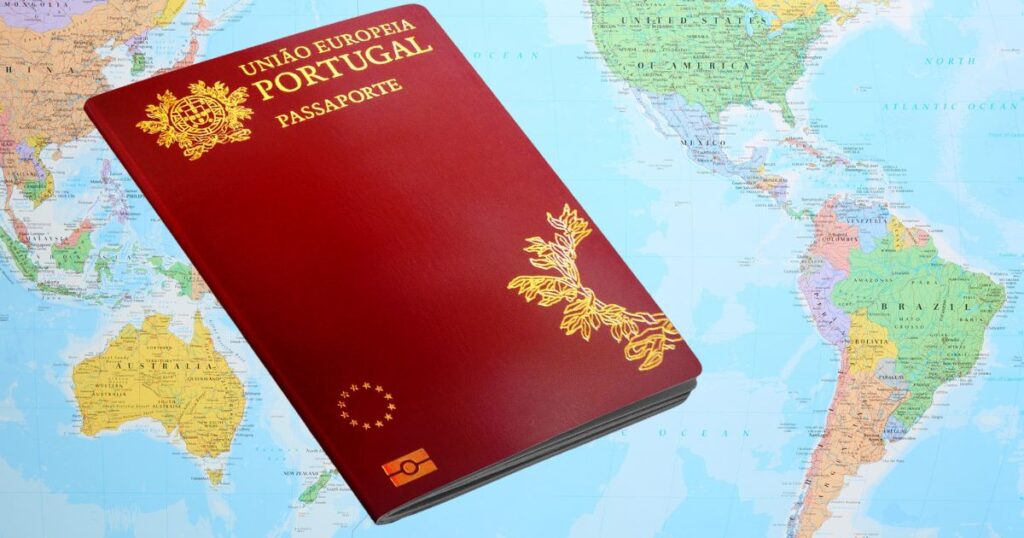The Decline of passport power of US and other countries has fueled global demand for second citizenship and passports despite Covid pandemic restrictions, reveals the new Knight frank report. Globally, nearly a quarter of UHNWIs are planning to apply for a second passport or citizenship according to the survey.
At the start of 2020, a US passport-holder could claim visa-free access, or visa-on-arrival, to 171 countries. Twelve months later that figure was 103, due to Covid-19 lockdowns and related travel restrictions.
Global wealth has remained firm despite the Covid-19 pandemic.
Ultra-high-net-worth individuals (UHNWI) are those having a net worth of at least US$30 million, who hold 13% of the world’s total wealth. As of 2020, there are 521,653 UHNWIs in the World, led by North America, Europe and Asia according to Knight Frank.
UHNWI numbers grew by 2.4% in 2020. The survey points out Asia will see the fastest growth in UHNWIs over the next five years, at 39% compared with the 27% global average.With lockdowns and movement restrictions forcing the wealthy to stay at home, many were able to play a more active role in their investment strategies.
Despite a reduced desire to travel, nearly a quarter of UHNWIs are planning to apply for a second passport or citizenship – a remarkable 50% growth in a year.
The Attitudes Survey reveals that 26% of UHNWIs are planning to buy a new home in 2021, with the biggest driver the desire to upgrade main residences.The survey points to a growth in demand for rural and coastal properties, with access to open space the most highly desired feature.
For economies with record debt levels from fighting the pandemic the incentive to have such programmes is clear. Many nations are actively wooing wealthy digital nomads. Across five Caribbean countries – Antigua and Barbuda, Dominica, Grenada, Saint Lucia, and St Kitts and Nevis – the benefits are said to be worth US$25 billion annually.
Many caribbean islands island captured the imagination of pandemic-weary UHNWIs seeking remote living in a secure and private idyll.
In the wake of the global financial crisis, indebted southern European economies turned to “golden visas” as a means to boost their fragile economies with some success – Portugal’s programme has attracted €5.6 billion since 2012, according to the country’s Immigration and Border Service.
Education a key driver of prime demand for real estate investments among UHNWI. Education and property investment are linked. Among Asian and African UHNWIs ,education is the motivation behind around 10% of property purchases. Expectations for second homes are increasing.
UHNWIs focus on second homes with better connections to their primary residence. A quarter of UHNWIs plan to invest in commercial real estate during 2021
The pandemic has led many expats to reassess their priorities and plans, particularly those located a long-haul flight away from elderly parents or children at boarding school. A third were planning a permanent move; the majority were seeking a second home. Demand for homes in locations that offer wellness and wellbeing was already on the rise since pre-covid, catapulted up by UHNWI agendas in the pandemic.
Traditional safe-haven currencies such as the US dollar, Swiss franc and Japanese yen rallied at the start of the pandemic as investors sought shelter, but the dollar ended the year 7% down against a basket of currencies . Such shifts, when added to the price declines seen in real estate prices.
Survey
- The Three biggest issues affecting their wealth that will most worry your clients in 2021?
| Ongoing disruption by Covid-19 | 80% |
| Domestic government policy | 49% |
| Tax issues | 42% |
| Geopolitics (trade wars, etc.) | 35% |
| Wealth transfer to the next generation | 28% |
| Brexit | 10% |
| Impact of rising wealth inequality | 8% |
| Civil unrest | 6% |
| Armed conflict | 3% |
2. What percentage of your clients are planning to apply for a second passport or new citizenship?
| Africa | 25% |
| Asia | 24% |
| Australasia | 8% |
| Europe | 24% |
| Latin America | 41% |
| Middle East | 28% |
| North America | 14% |
| Russia and CIS | 32% |
| UK | 18% |
| Average | 24% |
3. The main reason for purchasing a new home is?
| Upgrading the family’s main residence A new holiday home | 29% |
| A New holiday home | 23% |
| Moving permanently to a new country or territory | 20% |
| Tax reasons | 8% |
| Downsizing or retirement | 6% |
| Education | 4% |
4. On average, what percentage of your clients derive the majority of their wealth from the following sources?
- Own business – 49%
- Investment portfolio – 21%
- Salaried employment – 14%
- Mix – 10%
- Other – 5%
Source: Knight Frank Report





